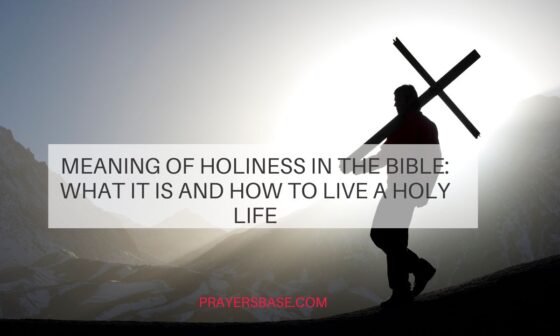Ever thought about why “judge not lest ye be judged” causes big debates among Christians? This teaching from the Bible tells us to stop judging others. It teaches us to be kind and understanding.
Some people think Jesus’ words mean we should never talk about wrongs. But that’s not what He meant. The real message is much deeper and can change us for the better.
Today, we judge quickly and harshly, thanks to social media. But the Bible teaches us to see things differently. What if we judged with kindness instead of harshness?
We will dive into Jesus’ words and find out their true meaning. We’ll learn how being kind and understanding can change our lives and our relationships.
The Bible doesn’t tell us to ignore truth or avoid being accountable. It’s about being humble and recognizing our own flaws. It’s about treating others with the same kindness we hope to get.
Where Does This Verse Come From in the Bible?
To understand the Bible, we must look at where it came from. The verse “judge not” is from Jesus’ Sermon on the Mount. This is a key moment in teaching us not to judge others.

Exploring Matthew 7:1-5
Matthew 7:1-5 teaches us about being open-minded and tolerant. Jesus tells us not to judge others harshly. He warns us against judging in a way that is hypocritical.
- The passage begins with “Do not judge, or you too will be judged”
- Jesus highlights the danger of critiquing others while ignoring personal flaws
- The text emphasizes self-reflection before external criticism
Reading Beyond the First Line
Many people only remember the first line of this verse. But Jesus is teaching us to look at our own hearts first. He wants us to understand others with compassion, not harshness.
This teaching calls us to grow spiritually. It’s about seeing our own flaws and treating others with kindness. It’s a call to truly accept and tolerate everyone, seeing their worth beyond what we see.
What “Judge Not” Doesn’t Mean
Many people get Jesus’ teaching on judgment wrong. This causes confusion on how Christians should make moral choices. Let’s clear up what this teaching really means.

Jesus’ words don’t mean we should ignore sin or not be accountable. We need to understand this teaching carefully. It’s about finding a balance in making spiritual choices.
It’s Not a Command to Ignore Sin
Jesus didn’t want us to ignore bad actions. Being non-judgmental doesn’t mean we ignore everything. It means we:
- See harmful actions
- Know the difference between judging and discerning
- Deal with tough situations with kindness
Accountability Matters
Looking inward is key when dealing with life’s issues. This teaching isn’t about being passive. It’s about correcting others with love and humility.
Not a Shield from Correction
Christians should help each other grow spiritually. This might mean giving gentle advice. The goal is to help, not to judge harshly.
We should talk about hard things with kindness. True spiritual growth needs love and honest words.
What Jesus Was Actually Saying
Jesus talked about judgment, but not all kinds. He was really against being too hard on ourselves and others. He used strong words to show how we judge others but ignore our own big flaws.
Jesus’ main point was about being wise and looking inside ourselves. He used a strong example to teach us:
- Knowing ourselves first is key before judging others
- Our pride can make us miss our own big problems
- Real growth comes from looking at ourselves honestly
Warning Against Hypocritical Judgment
Jesus didn’t like judgment that comes from pride or being too critical. He wants us to be humble and see our own flaws. He teaches us to correct others with kindness and a true wish to help.
The Path of Genuine Discernment
True spiritual insight comes from being humble. We should first fix our own flaws before trying to help others. This way, judgment becomes a way to help, not just criticize.
The Role of Righteous Judgment in the Christian Life
Walking the line between judgment and grace is tricky. It needs spiritual wisdom and knowing ourselves. Christians aim to see things clearly while being kind and fair. Learning to judge right is key to growing spiritually.
Jesus teaches us about right judgment in the Bible. He shows us how to handle tough spiritual situations with balance:
- Know the difference between judging harshly and discerning wisely
- Use compassionate judgment
- Try to understand before making judgments
Understanding Righteous Judgment
In John 7:24, Jesus tells us to judge righteously. He means we should judge carefully, not harshly. Spiritual wisdom means thinking deeply, feeling for others, and seeking truth with kindness.
Discernment as Spiritual Maturity
The apostle Paul says discernment is important for growing spiritually. In 1 Corinthians 2:15, he says wise believers can see things clearly. This means being thoughtful, not just critical, and aiming to help and understand.
Balancing Truth and Compassion
Jesus showed us how to speak truth with kindness. He was always merciful yet stood firm on what’s right. We can learn to talk about hard things with humility, knowing we’re all learning and growing.
Real-Life Examples – How to Live This Out Today
Dealing with complex social situations needs wisdom, kindness, and understanding. We face challenges that test our empathy and ability to not judge.
Social Media: Pausing Before Judging
Digital spaces can lead to quick judgments. Before we comment, let’s think:
- Context is key – try to understand before judging
- Ask questions instead of making guesses
- Remember, everyone has a complex story
Church Community: Correction with Love
When we talk about issues in our church, let’s do it with kindness. Gentle correction means:
- Being humble and reflective
- Talking from a place of care, not criticism
- Focus on fixing things, not just pointing out mistakes
Personal Relationships: Speaking Truth Gently
Real friendships need openness and kindness. Empathy makes tough talks better. Listen well, accept feelings, and give support with honest words.
Our aim is to support and grow together, not to judge.
Conclusion – Walking in Truth, Love, and Humility
Our journey to understand judgment shows us a deep spiritual path. Jesus teaches us to see others differently. He wants us to mix truth with kindness, making room for everyone.
When we think about judgment, we find important lessons:
- Approach others with genuine tolerance
- Recognize our own imperfections
- Speak truth through a lens of compassion
- Seek understanding before criticism
The Heart of Righteous Judgment
Judging isn’t always bad—it’s how we do it that counts. Our reasons for judging are key. Do we want to help or hurt? The Bible shows us a better way to interact.
Love: The Ultimate Fulfillment
The apostle Paul says, “Love does no harm to a neighbor” (Romans 13:10). This shows our goal. We aim to build communities filled with understanding and kindness.
Our spiritual growth comes from being humble. By using wisdom from above, we can change how we connect with others. This leads to true growth and maturity.
Examine Your Heart, Then Speak Life
Living with kindness means looking at ourselves first. We often judge others without checking our own hearts. God wants us to understand deeply, using kindness and grace always.
Before we speak or post online, let’s ask ourselves important questions. What makes us want to say something? Do we want to help or hurt? Loving words change our talks from harsh to kind. Looking inward helps us see our limits and be humble with others.
We can find God’s wisdom by being open to Him. Psalm 139:23-24 shows us how: “Search me, O God, and know my heart; test me and know my anxious thoughts. See if there is any offensive way in me, and lead me in the way everlasting.” This prayer lets God’s power change how we talk to others.
Our words can heal or hurt. Let’s choose kindness. Let’s speak with love, making every talk a chance for grace and connection. Move forward with an open heart, ready to listen more than we speak.
FAQ
What does “Judge not lest ye be judged” really mean?
This saying is not about never judging anyone. It’s about judging with kindness and humility. Jesus tells us to avoid judging others with pride. Instead, look at your own flaws and ask for grace.
Does this verse mean we should never point out wrong behavior?
No, it doesn’t mean we should ignore wrong actions. It’s about correcting others with love and wisdom. Speak the truth gently, with kindness and understanding.
How can I practice non-judgment in a world full of differing opinions?
To avoid judgment, listen well and try to see things from others’ views. Be aware of your own biases. Remember, everyone’s experiences are different, and kindness is more powerful than criticism.
Is there such a thing as righteous judgment in Christianity?
Yes, there is. Righteous judgment is based on love and aims to help others grow. It requires humility and a focus on grace, not blame.
How do I handle situations where I feel someone’s behavior is clearly wrong?
First, check your own heart and why you’re upset. Try to understand the situation with love and humility. If needed, correct gently, but always with kindness and respect.
Can social media and online interactions make non-judgment difficult?
Yes, they can. Social media often leads to quick judgments without all the facts. Think before you post, and try to spread love and understanding instead of criticism.
How can I develop a more non-judgmental attitude?
Start by knowing yourself better through prayer and reflection. Try to see things from others’ points of view. Recognize your own flaws and ask for God’s help to see others with love.







